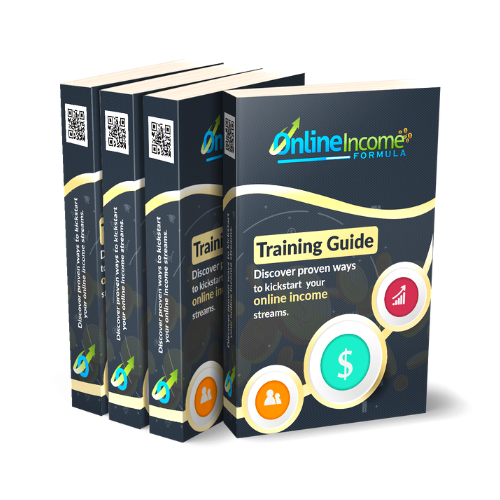s Make Money Online Real? The Truth About Earning Income Digitally
Is Make Money Online Real? The idea of making money online has captivated millions worldwide. From stories of people quitting their day jobs to travel the world as digital nomads, to viral posts about six-figure incomes generated through passive income streams, it all sounds too good to be true. But is making money online real, or is it just a modern-day myth?
In this comprehensive guide, we’ll dissect the reality behind making money online, separate fact from fiction, and explore legitimate ways to generate income on the internet.
Table of Contents
- Introduction: Why So Many Doubt Online Income
- Is Making Money Online Real?
- Why Scams Have Tarnished the Reputation of Online Earning
- Legitimate Ways to Make Money Online
- Freelancing
- E-commerce and Dropshipping
- Affiliate Marketing
- Blogging and Content Creation
- Online Courses and Digital Products
- Stock Photography and Art
- Remote Employment
- Myths vs. Facts About Making Money Online
- How to Spot Online Money-Making Scams
- Pros and Cons of Making Money Online
- FAQs: Is Making Money Online Real?
- Final Verdict: Should You Pursue Online Income?
Introduction: Why So Many Doubt Online Income
For decades, the internet has been a goldmine of opportunity—and deception. The phrase “make money online” is often met with skepticism due to the prevalence of scams, get-rich-quick schemes, and misleading advertisements promising overnight wealth.
However, in 2025, the digital economy is larger and more accessible than ever before. From freelance designers in Bali to YouTubers in New York, millions are making real income online.
The question remains: Is making money online real? Short answer—yes. But like any legitimate source of income, it requires time, effort, skills, and consistency.
Is Making Money Online Real?
Yes, making money online is real. The internet offers numerous avenues for generating income, whether through freelance work, selling products, or building digital platforms. Many people have successfully transitioned to fully remote careers or side hustles that significantly supplement their primary income.
According to a 2024 report by Upwork, over 70 million Americans freelanced last year, contributing over $1.5 trillion to the economy. Platforms like Etsy, Amazon, YouTube, and Fiverr have empowered everyday people to monetize their skills, knowledge, and creativity.
So why do so many people still question its legitimacy? The answer lies in misinformation and the seductive allure of easy money.
Why Scams Have Tarnished the Reputation of Online Earning
The phrase “make money online” is frequently associated with scams because of:
1. Get-Rich-Quick Schemes
From multi-level marketing (MLM) programs to deceptive trading platforms, many schemes prey on those desperate for financial freedom without the willingness to put in the necessary work.
2. Fake Testimonials and Ads
Photoshopped bank statements and fake social proof make it appear as though anyone can make $10,000 per month within days.
3. Lack of Regulation
The global nature of the internet makes it difficult to regulate or police these schemes, allowing fraudulent activities to flourish.
Despite these issues, legitimate ways to make money online do exist. The key is distinguishing between scams and authentic opportunities.
Legitimate Ways to Make Money Online
Let’s explore proven methods people use to earn income online.
1. Freelancing
Freelancing involves offering your skills to clients on a per-project basis. Popular fields include:
- Writing and editing
- Graphic design
- Programming
- Digital marketing
- Virtual assistance
Platforms: Upwork, Freelancer, Fiverr
Income potential: From $10/hour to $100+/hour depending on skills and experience.
2. E-commerce and Dropshipping
E-commerce involves selling physical or digital products online. Dropshipping allows you to sell products without handling inventory.
Key platforms: Shopify, WooCommerce, Amazon FBA
Pros: Low upfront costs with dropshipping.
Cons: High competition, requires marketing expertise.
3. Affiliate Marketing
Affiliate marketing entails promoting products and earning a commission for every sale made through your referral link.
Popular niches: Health and wellness, tech gadgets, finance
Key platforms: Amazon Associates, ShareASale, CJ Affiliate
Realistic earnings: From $50/month for beginners to $10,000+/month for established marketers.
4. Blogging and Content Creation
Starting a blog or YouTube channel is a long-term strategy for earning passive income through:
- Ads
- Sponsored posts
- Affiliate links
- Product sales
Example: A food blogger earning through recipe eBooks and sponsored cookware reviews.
Challenge: Requires consistent content creation and SEO optimization.
5. Online Courses and Digital Products
If you’re an expert in a specific field, creating and selling digital products like eBooks, templates, or online courses is highly scalable.
Popular platforms: Teachable, Udemy, Gumroad
Pros: Passive income potential.
Cons: Requires initial time investment for product creation.
6. Stock Photography and Art
Photographers and artists can sell their work on:
- Shutterstock
- Adobe Stock
- Etsy (for digital art)
Earnings: Depends on the quality, niche, and volume of uploads.
7. Remote Employment
More companies now offer fully remote jobs, ranging from software development to customer support.
Key sites: Remote.co, We Work Remotely, FlexJobs
Pros: Stable income with benefits.
Cons: Similar structure to traditional employment.
Myths vs. Facts About Making Money Online
| Myth | Fact |
|---|---|
| You can get rich overnight | Building a sustainable online income takes time |
| Only tech experts can succeed | Many online opportunities require no coding skills |
| All online money-making schemes are scams | While scams exist, many legitimate options are available |
| Passive income is truly passive | Passive income requires upfront work and maintenance |
| Online income is unstable | With the right skills and strategies, it can be as stable as traditional jobs |
How to Spot Online Money-Making Scams
Here are red flags to watch out for:
1. Promises of Instant Wealth
Anyone claiming you can make thousands with no effort is likely scamming you.
2. High Upfront Fees
Legitimate freelancing or business platforms may charge minimal fees, but avoid programs requiring large investments to “unlock” income streams.
3. Lack of Transparency
If the business model is not clearly explained, proceed with caution.
4. Pressure Tactics
Scammers often use urgency (“limited spots left!”) to push you into making quick decisions.
5. Unverifiable Testimonials
Check for real reviews on independent platforms like Trustpilot.
Pros and Cons of Making Money Online
Pros
- Flexibility: Work from anywhere at any time.
- Low startup costs: Many methods require minimal investment.
- Scalability: Potential to turn side hustles into full-time careers.
- Diverse options: Something for almost every skill set.
Cons
- Uncertainty: Inconsistent income, especially initially.
- Isolation: Lack of social interaction compared to traditional workplaces.
- Requires self-discipline: No boss means you must manage your own schedule.
- High competition: Especially in saturated niches like blogging or e-commerce.
FAQs: Is Making Money Online Real?
To help you better understand the landscape, here are frequently asked questions optimized for SEO:
1. Is making money online a scam?
No, making money online is not inherently a scam. However, there are many scams disguised as legitimate opportunities. It’s important to research and verify any platform or method before investing time or money.
2. Can I really make a full-time income online?
Yes, many people earn full-time incomes online through freelancing, e-commerce, blogging, and other avenues. However, it requires skill, strategy, and consistency.
3. What is the easiest way to make money online?
The “easiest” way varies by individual skills. For beginners, options like freelancing or taking online surveys are accessible, but they may not offer high income. Long-term methods like blogging or affiliate marketing can be more lucrative but require effort upfront.
4. How much money can I realistically make online?
Your income potential depends on the method, skills, and time invested. Some people make an extra $100 per month, while others build six-figure businesses.
5. Do I need to invest money to make money online?
Not always. Many online income methods, like freelancing or content creation, require little to no initial investment beyond a computer and internet connection. However, businesses like e-commerce may require capital for inventory or marketing.
6. Are online surveys a legitimate way to make money?
Yes, but the earnings are typically very low. Platforms like Swagbucks or Survey Junkie pay for your time, but don’t expect to get rich.
7. How long does it take to make money online?
It depends. Freelancers can start earning within days, while bloggers or affiliate marketers may take months or even years to see substantial income.
8. What skills do I need to make money online?
Skills vary by method but commonly include:
- Writing and communication
- Digital marketing
- Graphic design
- Coding (optional but useful)
- Video production
- Social media management
9. Can teenagers make money online?
Yes. Teen-friendly methods include tutoring, content creation, and selling crafts online. Always ensure compliance with platform age restrictions.
10. Is passive income from online sources truly passive?
No. Most passive income streams require upfront work, whether that’s writing a blog, creating a course, or setting up automated systems. Maintenance is often needed to sustain income.
Final Verdict: Should You Pursue Online Income?
Is making money online real? Absolutely.
But it’s not magic—it’s work. The internet has democratized access to income-generating opportunities, but success requires the same elements as any traditional career: effort, persistence, and adaptability.
If you’re interested in supplementing your income, exploring new career paths, or achieving financial independence, learning how to make money online is a worthwhile pursuit.
Key Takeaways:
- Making money online is real and achievable.
- Avoid get-rich-quick schemes; they are usually scams.
- Choose a method that aligns with your skills and lifestyle.
- Be prepared to invest time and effort to see results.
Final SEO Tips
If you’re looking to succeed in making money online, focus on building valuable skills, creating authentic content, and delivering real value to your audience or clients. With patience and the right approach, you can build a reliable online income stream.
If you found this guide helpful, share it with your friends or bookmark it for future reference!





